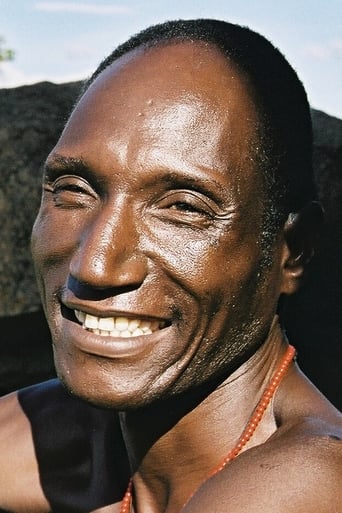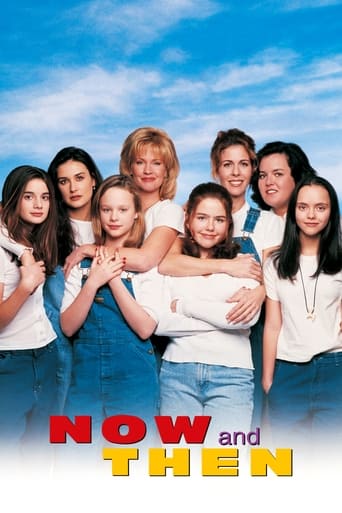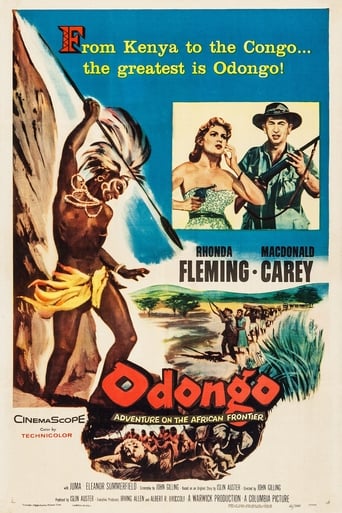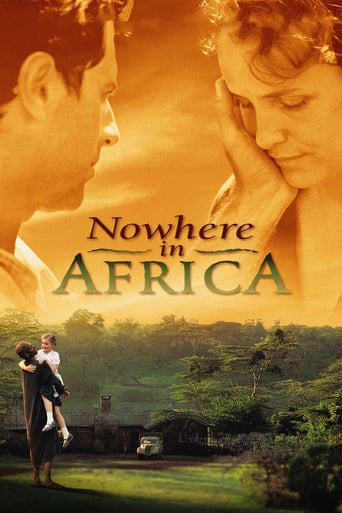
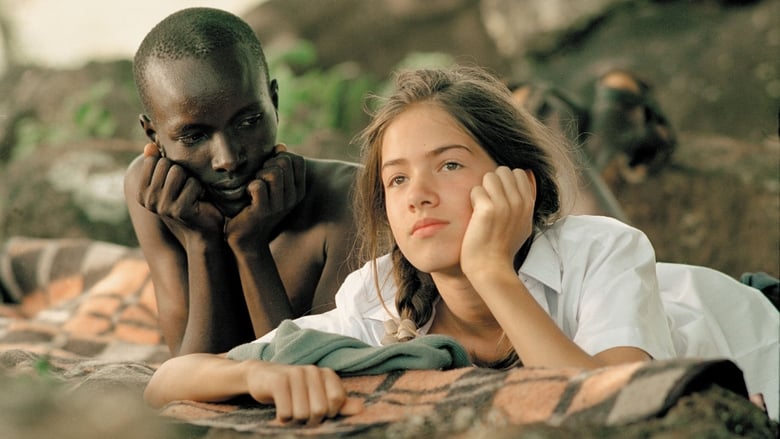
Nowhere in Africa (2001)
A Jewish woman named Jettel Redlich flees Nazi Germany with her daughter Regina, to join her husband, Walter, on a farm in Kenya. At first, Jettel refuses to adjust to her new circumstances, bringing with her a set of china dishes and an evening gown. While Regina adapts readily to this new world, forming a strong bond with her father's cook, an African named Owuor.
Watch Trailer
Cast
Similar titles



Reviews
Too much of everything
Great Film overall
This is a small, humorous movie in some ways, but it has a huge heart. What a nice experience.
There's no way I can possibly love it entirely but I just think its ridiculously bad, but enjoyable at the same time.
Jettel: I'm afraid of those people, not you? The movie, based on Jettel daughter Reginas book with the same title and screened November 11 2013 by Stockholms Goetheinstituts film club. Not all Jews translated early the German brown years signals. Those who could afford it financially or with their will to find ways and means to leave Germany: they did it. Some early, some later and some, as Walter Redlichs upper-class wife with her daughter the last minute; leaving behind the parents. His father believed: this will be over after at least two years. But Walter saw the signals early, leaving Germany for Kenya. For Jettel, used to upper class life the adjustment to her new life is difficult. Instead a refrigerator, she buys a ballroom gown. She wants to return to Germany. But her husband, knowing what is going on in Germany, tells her that she is lucky to have her life. For his and her parents it meant Auschwitz. Realizing the truth she accepts Nowhere and fills it with meaning. More than her husband, asked 1948 to return and be a judge. Now it is she who wants to stay. By own strength and struggle she formed their new life. The marriage is shaky and the reason that other men fill the gap: the neighbor Suesskind and the English officer, offering his help when she and if ... Afterwards it will be criticized. Times of no-where ("Nowhere" in the literary sense can mean "utopia", no- or good place) forces decisions that in normal times never should be an issue to discuss. They have their own law. For their daughter everything is an adventure. Quickly she adjusts, getting friends. Especially the friendship with the cook Owuor who tells the white Jettel: "I'm a cook. Cooks don't dig in the ground and men don't carry water." Jettel tells him, if he wants to speak to her, he must speak German. German she is, does exactly what the Germans did to her before the move to Kenya. But the cook accepts and carries water, laughed at by the others. Eventually Jettel learns by her mistakes to do better. Learns what tolerance is and should not be.The fugitives where outsiders: white, Germans and - Jews. 1948 is Walter offered to return to Germany as judge in Frankfurt. He tells his daughter and his wife answers: "I am afraid of those people, not you?" Yes, he answers but he wants to be in the front line with the others to give Germany a fresh chance. For Jettel, the new country accepted by trial and error: she has to return to Germany. This country that send his and her husbands parents to Auschwitz. Even them if they had stayed. Her daughter asks why the Jews are so different: "Mother, why are the Jews hated? I mean. You and father are not really Jewish." The mother answers that they never felt Jewish, as aunt Käthe. They where more German as the Germans, seeing for tea their friends at Café Mohnheim in Breslau. Tolerance. What Jettel has learned in Kenya: differences are important: "Tolerance doesn't mean that everyone is the same. That'd be stupid. What I've learned here is how valuable differences are. Differences are good. And intelligent people will never hold it against you." Walters accepts the return to Germany: giving Germany a new chance. He is one of many (when it was clear that Germany looses the war the re-educational movies where USA-prepared). 2001, the same year the movie was screened, it was clear that the Germans had not taken their chance (perhaps one, but two are still Nazis, as Jettel says, and three still want 'Lebensraum', using their German 'Ton'). The female director wrote the script as a reminder, using Reginas book.
If Jettel Redich, a sophisticated, attractive and perhaps shallow woman with a small daughter, a loving husband and a warm, extended family, had had her way in 1938 she would not have left Germany to join her husband in East Afrika. Of course, if she hadn't she and her daughter, along with all her family, would have been killed in the German death camps three or four years later. Jettel (Julianne Kohl), her husband Walter (Merab Ninidze) and their daughter, Regina (Lea Kurka and then, older, Karoline Eckertz), are Jews. Walter, a prosperous lawyer and judge in Germany, could see what was happening. He managed to get an exit visa, went as a Jewish refuge to Kenya, and then sent for his family. Regina with help got exit visas, but only reluctantly. The other family members all believed their fellow Germans would come to their senses and the Hitler thing would pass. Nirgendwo in Afrika tells us what happened to Walter, Jettel and Regina. It's an absorbing story which, even in 141 minutes, tries to do too much. Even so, and even if nothing really seems deeply affecting and certainly not tragic, the Redich family and how they changed kept me watching. The movie is rambling but also often affecting. The best Walter could do was to hire on to run a failing cattle outpost. The land is dry and full of scrub. He writes to his wife asking her bring a number of practical things they will need. She, instead, brings an expensive ball gown. Their house is scarcely more than a large shack. Malaria is always a possibility. The native Kenyans look upon them as curiosities. Water has to be carried from a distant well. In the midst of all this we see three things. Walter knows that staying in Germany would have meant death for them. He's prepared to do what he must to make some sort of life where he is. Jettel is appalled by what she sees and faces. She longs for her family and for the life she had. There, she was married to a prosperous lawyer and judge. Here, she is married to a hired hand. Regina, about six years old, simply accepts everything. Soon she's playing with the native children and picking up their language. The family has a cook, a tall man named Owuor (Sidede Onyulo). Walter tries to deal with him respectfully. Jettel without thinking about it treats him as a servant. Regina as usual simply accepts him as a friend. To give you an idea of the tone of the movie, if Nirgendwo in Afrika were remade by Hollywood, the part of Owuor would undoubtedly be played by Morgan Freeman. In the course of the movie they make one good friend, a tough fellow Jew who left Germany in 1933. They are interred by the British as a possible threat when war comes in 1939, even though they are refugees from Nazi Germany. They eventually are released. Sexual dissatisfaction abounds. Walter finds employment on a better farm, he joins the British Army and is sent to Burma. Jettel learns how to run the farm and deal with the native workers. Regina grows into a unselfconscious child whose friends are all native children. She learns about being a Jew when she is sent to an English school in Nairobi where the anti-Semitism is more condescending than vicious. In a subtle way Caroline Link, the director, also lets us make our own discoveries regarding the treatment of Jews in Thirties Germany and the treatment of Africans by colonialists. By now we've seen Walter's and Jettel's marriage nearly break apart. We even experience locusts. We also see, gradually, how Walter for all his practicality yearns to return to Germany after the war. We see how Jettel has grown into a responsible, capable woman who has come to love where she is and hates the idea of returning. Regina, or course, simply has become a part of Africa and of the people she knows. Like the movie itself, the conclusion is not quite satisfying and not quite unhappy. The only serious reservation I have about the movie are the two instances of fairly explicit coupling involving Walter and Jettel. My objections have nothing to do with prudery, but with how sex is usually used to pander to the audience. In both scenes sexual intimacy is used to show us the longing and need for the kind of shared intimacy that includes but goes well beyond sexual need. The director chooses to show us so much skin, so many positions and so much perspiration that, in my view, the audience is simply encouraged to become voyeurs in the name of art. As with most dramas, the more explicit the sex we see, the more the story-line comes to a halt. Nirgendwo in Afrika won the 2003 Academy Award for best foreign language film. It is beautifully photographed.
Didn't know what to make of it as I began watching it. Thought it might be just another one of those movies about Africa, not that there are many I don't like. This went far beyond any movie I've ever seen just on Africa. And more than that, it was one of the best I've seen, easily putting it among my top 10 favorites. The performances by all involved were wonderful. I won't repeat the details of this movie as it has already been done by many others, but do yourself and don't miss this one. You'll lose yourself for a couple of hours and experience a piece of history you never knew about and how others managed to cope with a difficult situation and become the better for it.
Having recently done research on Grandparents who left Berlin in 1939 for exile in Denmark, I found this film relevant and moving at times. I remember my mother telling me about how my father reacted in horror when he received a letter telling of his mother's (another grandparent) abduction from Norway to Auschwitz. This reaction is mirrored poignantly in the film.There could be similar films about the many German Jews who escaped at the last moment to Shanghai, for instance. They ended in that foreign environment mainly because Hamburg, which coveted its semi-independence and kept a distance from the Nazis, had quasi-diplomatic relations with the Chinese port and obtained visas. As I recall, the family of former Treasury secretary Michael Blumenthal spent the war in Shanghai.Weaknesses of the film: The strange title. Nowhere ??? in Africa? In fact, the husband early on establishes roots in Africa, and by the end of the film the wife and daughter have deep roots there. Why belittle Kenya and its people? The hint of antisemitism among the British. Yes, the British have a tradition of antisemitism but nothing even close to the state-sponsored horror perpetrated by the Germans. The love triangle involving Susskind. Not needed, really. Enough else is going on.The wife willingly has sex to get the husband a job. Ouch. Another cliché we don't really need.The wife says she's pregnant. The husband merrily asks, Is it due to me? Ouch, ouch. Would have been nice twist if African cook were responsible. Anyway, the pregnancy is tossed in as some sort of cliché, the importance of which is not worth figuring out.The wife is a little too prissily German Jewish when she arrives in Kenya. By then, the Nazi horror was in full swing, and the blissful days eating Schlagsahne at the Konditorei were pretty much over. A sense of impending tragedy was foreign to only the most total twit, though many Germans of Jewish ancestry could not take the final step to leave the country they loved.Hearing Hitler speak on the radio, the wife early on feels comforted to being connected to Germany. Yeah, sure. That is totally removed from reality. Irresponsibly suggests that maybe German Jews were responsible for their tragedy.The Africans are too childlike, too noble, too subservient. There was African nationalism already in the 1930s.The husband returns in 1947 to be a judge in Wiesbaden. Highly unlikely. Virtually no Jews returned that early. The very great majority never returned. His return somehow lessens the horror of the Nazi years. The filmmaker seems to be trying to sugarcoat the real horror, much of it emanating from the true character of the Germans.Sorry, but in some ways the director treats the Africans of Kenya like the Nazis treated the Jews, as low-level outsiders. Would have been interesting to match newsreel footage on Nazi terror and horrors with movie's footage on Kenya animal sacrificae, to show that former is perverted, latter rooted in religion.Sort of a repellent and repulsive film on reflection. Excellent for portraying the perverted German psyche, however, as exhibited by the film maker. Tied for dishonor of being Worst Film on Holocaust Ever with "Sophie's Choice," another abomination. "Night and Fog" and "The Sorrow and the Pity" are among many worthy films on the Holocaust.


